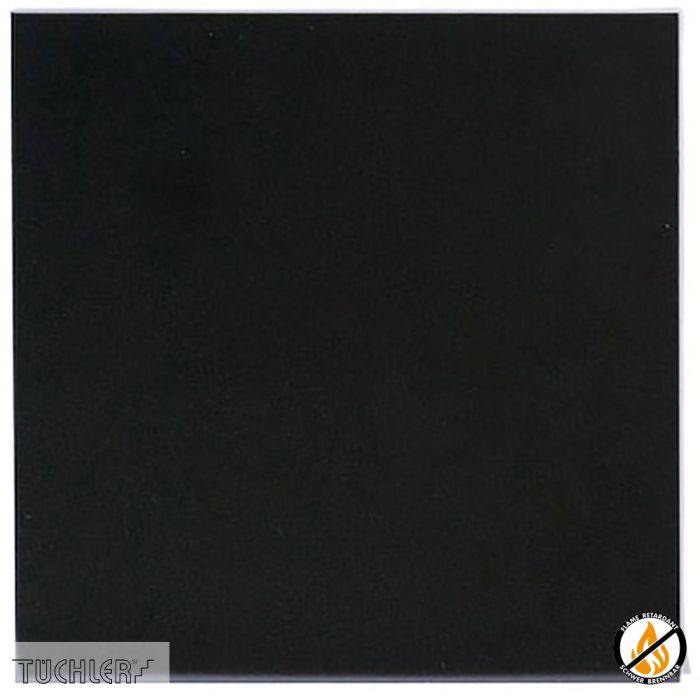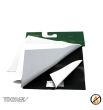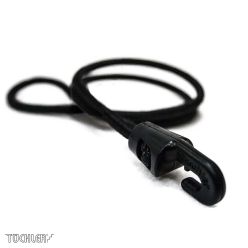BLACK SCREEN CARBON
 Made in EU
Made in EU
Areas of use
- Effect use with very bright projectors
- Use for darkening/blackout in indoor area
Notice on ingredient labeling as of January 28, 2025:
This product contains the substance Triphenyl Phosphate (TPP, CAS No. 115-86-6, EC No. 204-112-2) in a concentration exceeding 0.1%. TPP has been included in the Candidate List of “Substances of Very High Concern” (SVHC) under the REACH regulation. Short-term exposure poses no risk. The product is not suitable for contact with food or use in children's toys. For more information, please visit the European Chemicals Agency (ECHA) website.
| excl. VAT | incl. VAT | ||||
|---|---|---|---|---|---|
|
from 1 lm |
€29.35 | €35.22 | |||
|
from 10 lm |
€23.50 | €28.20 | |||
|
from 100 lm |
€23.50 | €28.20 | |||
| plus shipping costs | |||||
Technische Details:
- flame-retardant; EN13501 B-s1, d0
- KM2 (123-FZ RF)
- 100% polyvinylchloride
- width 200 cm
- 450 g/m²
- appr. 100lm rolls
general usage instructions and warnings for projection foils (sold by metre)!
Valid from January 1, 2014
1. Creases
Projection films are generally packed and shipped folded. After opening and stretching the projection films evenly on all sides, the creases usually disappear completely. As far as technically possible, projection films can also be shipped rolled – at an additional cost for packaging and transport. This increases the likelihood of crease-free or complete crease recovery. The recovery process depends on room temperature, tension during installation, and time. Any visible remaining creases do not constitute a reduction in the value of the projection film.
2. Proper use of projection films
Projection films are optimized for front or rear projection depending on the type, for use with the usual angles of light incidence in video, slide, or film projections. A smooth and flat surface is only achieved by evenly tensioning the projection films on all sides. When used under strip or side lighting, uniform tension on all sides is essential. Any visible remaining creases, seams, or waves caused by tension or installation do not reduce the value of the projection film.
3. Evaluation of color deviations and brightness differences
Projection films are manufactured in large-scale facilities of the PVC industry and are subject to strict quality controls. However, even this industry has tolerances. These are very small and often cannot be noticed under normal lighting conditions. Rarely, these deviations become visible under certain application conditions. Please note that color deviations, which only become visible when the viewing angle corresponding to half the luminance is exceeded, are technically inherent and do not reduce the value of the film.
4. Use in roller screens
All projection films can be made by Tüchler® in roller screens in Superflat versions. Please request a quotation. The installation of projection films by third parties in roller screens is done at their own risk. Tüchler® is free of any liability and/or claims for damages in this regard.
5. Dimensional stability + tolerances for cut material
Projection films are made of a thermoplastic material. The material changes its stretch behavior, softness, and length with changes in room temperature. Therefore, cuts are always subject to a tolerance of +- 5% at a room temperature of 22°C.
6. Use in winter and cold regions
Please note that projection films can cool down significantly during transport. In such cases, projection films must be stored and warmed before opening in such a way that the core temperature inside the film package reaches >= 21°C. If the film is opened at a core temperature lower than 21°C, it will be stiff and may suffer cuts or irreversible impressions and white marks from moderately sharp edges. A too low core temperature before unfolding also causes persistent creases.
7. Lifespan of projection films
With proper use and storage at room temperature, your projection film can last for many years. Projection films contain plasticizers that gradually evaporate over time. After several years, this may cause effects such as color changes, yellowing, brittleness, or oily spots on the surface. These effects are not warranty-relevant defects but are normal material-related signs of aging.
8. Exclusion of DIN and other projection standards
The projection film has been optimized for use in theaters, operas, events, exhibitions, tours, and similar applications, and is characterized by its specific color, projection behavior, robustness, and fire resistance. The film was not developed for use in cinemas or similar environments. Any assessment according to applicable standards for projection surfaces, particularly DIN standards, and complaints based on them are excluded unless contractually agreed in writing on a case-by-case basis.





